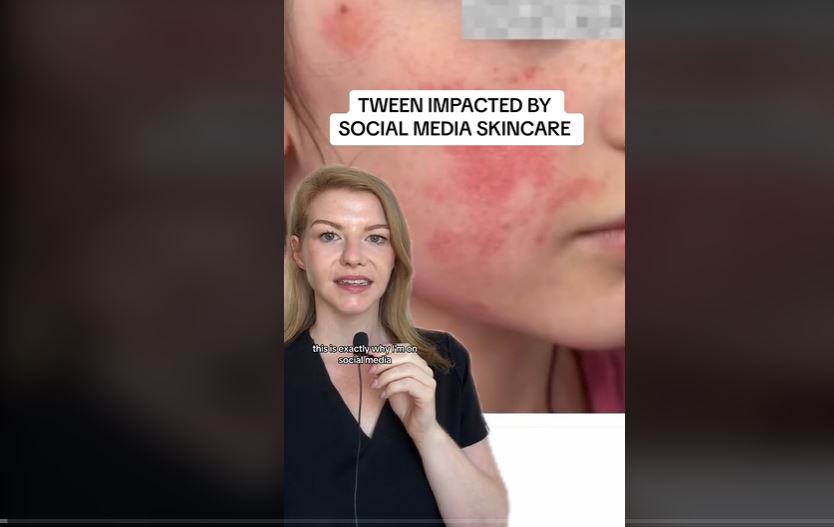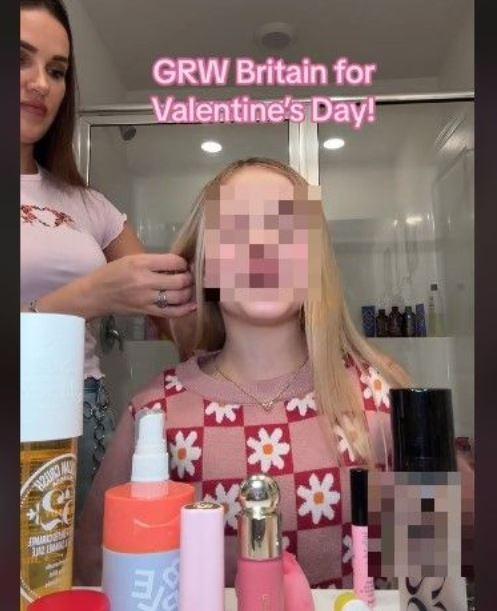
'Sephora kids' trend sparks health concerns
- This article is more than one year old.
- Published on March 4, 2024 at 21:18
- 3 min read
- By Julie PACOREL, AFP USA
- Translation and adaptation Natalie WADE
Like the routines shared by adult influencers, "Sephora kids" is gaining large audiences with its "get ready with me" (GRWM) videos with girls, some under age 10.
One "mom-influencer" highlights her daughters' beauty rituals behind a display of products in a February 14, 2023 TikTok.
The girl applies expensive creams, some containing potent active ingredients, followed by light makeup and lip gloss.

"Sephora kids" videos have garnered international popularity on the social network, with many videos earning thousands of views. Some girls spend small fortunes on their shopping sprees, and more and more stores are left to deal with ravaged shelves, spilled products and destroyed makeup, courtesy of their young patrons.

But the main concern, experts point out, comes from the choice of products young people are gravitating toward, which are often unsuitable for their age.
Youthful skin
"We are seeing more rashes and irritations from young tweens and teens using products that they see advertised on social media," Anne Chapas, a Manhattan-based dermatologist and dermatologic surgeon, told AFP.
Despite the youthful and brightly colored packaging, much of the skin care touted in these videos contains aggressive active ingredients sold as "anti-aging" or "anti-blemish" solutions.
Danilo Del Campo, a Chicago-based dermatologist told AFP he has had many more adolescent patients asking for these types of creams.
As more children are using adult cosmetics, he has also noticed "an increase in consultations related to skin reactions and concerns resulting from the misuse of these products."
This is due to ingredients including retinol and a variety of acids which can cause redness, flaking, and tightness of the skin.
He warns: "Young skin is more delicate and more sensitive to irritation" and these products can compromise the skin's natural barrier. Early exposure to a wide variety of chemicals contained in these cosmetics, "can cause allergic reactions or dermatitis," he said.
To minimize risks, Campo advises parents to "supervise their children's skincare choices and prioritize products specifically designed for young, sensitive skin." This means mild, fragrance-free, and hypoallergenic products that will not expose them to unnecessary irritants or allergens.
Some doctors on TikTok have voiced their similar concerns. "What does a nine-year-old with normal skin need with that many acids?" said one dermal clinician, reacting to the skin problems suffered by a 9-year-old child following the use of several trendy products.
An impact on self-esteem
In consultations, Campo also notices self-esteem problems in young children who "feel the need to correct perceived flaws that may not actually exist." He worries the trend could be impacting the self-image and confidence of young girls during crucial developmental years.
Michael Stora, a psychoanalyst specializing in online behavior, said the girls in the videos are "not playing with dolls as you might expect at their age -- they are the dolls."
Some mothers in the videos defend the trend as just a "game" -- but Stora accused parents of the "fetishization" of their offspring.
"I see more and more parents with a sense of narcissistic fragility where they see the world only as beautiful or not beautiful," said Stora.
Solene Delecourt, a professor at the University of California, Berkeley who specializes in social inequality, also believes the videos can "contribute to a very stereotypical representation of girls and women online."
"These are not women but little girls, and they are already subject to this intense social pressure," she said.
AFP contacted Sephora, owned by French conglomerate LVMH, for comment but a response was not forthcoming.
Copyright © AFP 2017-2026. Any commercial use of this content requires a subscription. Click here to find out more.
Is there content that you would like AFP to fact-check? Get in touch.
Contact us
